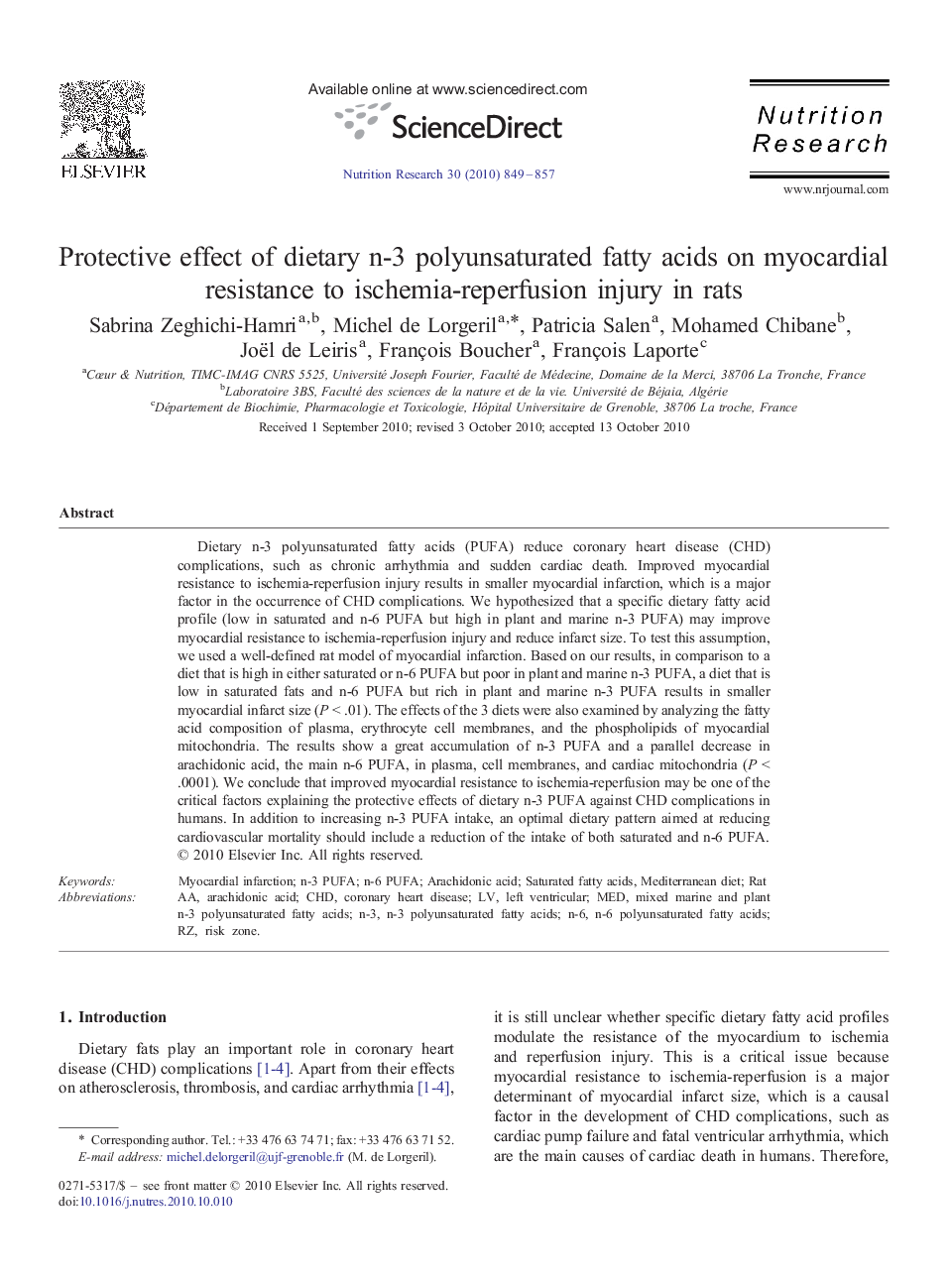| Article ID | Journal | Published Year | Pages | File Type |
|---|---|---|---|---|
| 2809625 | Nutrition Research | 2010 | 9 Pages |
Dietary n-3 polyunsaturated fatty acids (PUFA) reduce coronary heart disease (CHD) complications, such as chronic arrhythmia and sudden cardiac death. Improved myocardial resistance to ischemia-reperfusion injury results in smaller myocardial infarction, which is a major factor in the occurrence of CHD complications. We hypothesized that a specific dietary fatty acid profile (low in saturated and n-6 PUFA but high in plant and marine n-3 PUFA) may improve myocardial resistance to ischemia-reperfusion injury and reduce infarct size. To test this assumption, we used a well-defined rat model of myocardial infarction. Based on our results, in comparison to a diet that is high in either saturated or n-6 PUFA but poor in plant and marine n-3 PUFA, a diet that is low in saturated fats and n-6 PUFA but rich in plant and marine n-3 PUFA results in smaller myocardial infarct size (P < .01). The effects of the 3 diets were also examined by analyzing the fatty acid composition of plasma, erythrocyte cell membranes, and the phospholipids of myocardial mitochondria. The results show a great accumulation of n-3 PUFA and a parallel decrease in arachidonic acid, the main n-6 PUFA, in plasma, cell membranes, and cardiac mitochondria (P < .0001). We conclude that improved myocardial resistance to ischemia-reperfusion may be one of the critical factors explaining the protective effects of dietary n-3 PUFA against CHD complications in humans. In addition to increasing n-3 PUFA intake, an optimal dietary pattern aimed at reducing cardiovascular mortality should include a reduction of the intake of both saturated and n-6 PUFA.
